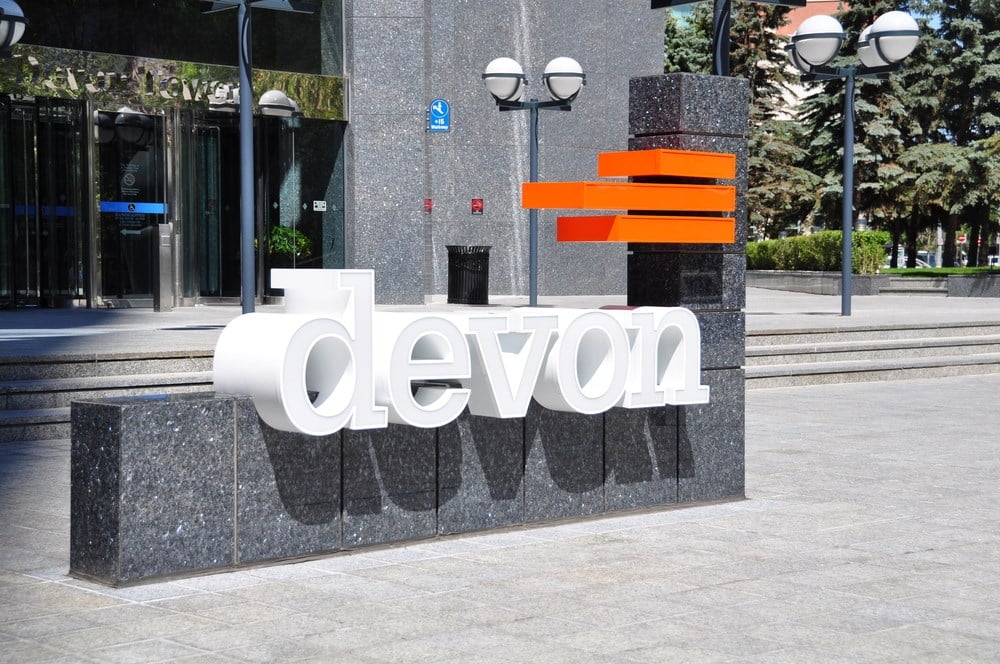
Devon Energy (NYSE: DVN) reported its first quarter 2023 earnings results on Monday; markets did not seem entertained enough as DVN shares only rose to close the trading session up 1.27%. Nevertheless, some investors may be well served by understanding what is happening behind the scenes in Devon and how the stock price may react in the following months.
Devon analyst ratings suggest the stock holds an underlying upside potential of nearly 40%; indeed, there must be some tailwind pushing analyst sentiment to prescribe such bullish targets. Oil prices have declined from their previous $85-$90 range in the third and fourth quarters of 2022 to today's range of $65-$75. Concerns of a slowing U.S. economy due to tighter monetary policy are placing additional weight on future oil price expectations. Oil price variation and industry dynamics may shine a bright light on investors, showing them exactly how these bullish targets may become a reality.
Capacity Utilization: A Gauge for Demand
According to the FED capacity utilization readings for specific industries, the crude oil branch of the economy may see the bulk of capital flows into it. The crude industry is experiencing elevated utilization readings of 89.3%, where they have remained for the whole first quarter of 2023. Furthermore, from 1972 through 2022, average utilization readings for the industry stood at 85.6%, signaling increased demand in the past few quarters due to global oil demand. Now that oil prices are declining and are expected to continue to lower, the industry can expect further utilization readings.
Devon Energy's capacity utilization readings were 58.1% in 2022, a year when oil prices surged to their highest in more than a decade, reaching $120 per barrel, causing demand to falter. Decreased capacity utilization, however, is good news for an operator like Devon. In addition, 2022 saw the highest gross margins since 2018, when oil surged to mark a five-year high price; 2022 gross margins closed the year at 85.3%. With operating margins and earnings per share following the trend of higher oil prices, Devon closed 2022, reporting $9.12 earnings per diluted share.
These trends are important to investors because they directly affect the business's free cash flow generation ability, which affects the ability to pay dividends and repurchase shares. As of the first quarter of 2023, capacity utilization for the company stood at 81.9%, to record the highest level since the 2015-2016 period (when oil prices similarly declined). What would follow next is a contrarian yet profitable view that dictates oil prices rally instead of falling, bringing Devon's profitability up and capacity utilization down as a result.
Capital Allocation, a Clue to the Future
Management stated in its press release that oil production reached an all-time high of 320,000 barrels per day in the first quarter. These volumes accrue to the thesis that capacity utilization must come down, increasing margins and profitability. Luckily for investors, the shares of Devon are down 42% from their peak in 2022, so they may get a chance to catch these trends early. In addition, despite reporting a 49% decline in free cash flow, closing the quarter at $665 million, management bought back 12 million shares for a total cash return of $692 million. Finally, the board of directors approved a share-repurchase program, which increased the pace of buybacks by 50% to allow a total of $3.0 billion for 2023.
Buying back such an immense amount of shares is a sign to investors that management could believe the stock to be cheap, further adding to the evidence stack of a coming cyclical rally. Moreover, Devon's dividend yield suggests a rhyming conclusion, offering investors 10% for its highest yield in over a decade. Where Devon stock typically pays out between 2.5-3.0%, such high yields today suggest upside potential much higher than that analysts perceive.
To further amplify the potential upside in DVN stock, management has provided some 2023 outlooks in their presentation. Devon shareholders may be in for one deep value play, expecting to generate 25% returns on capital employed, accruing to a 10-12% free cash flow yield. Today the stock trades at 6.5x last-twelve-months earnings multiples, when historically these multiples have ranged upwards of 18-22x. Expecting to achieve an average free cash flow of $3.5 billion in 2023, investors can rest assured that continued dividend payments will be made, along with aggressive share repurchases.





